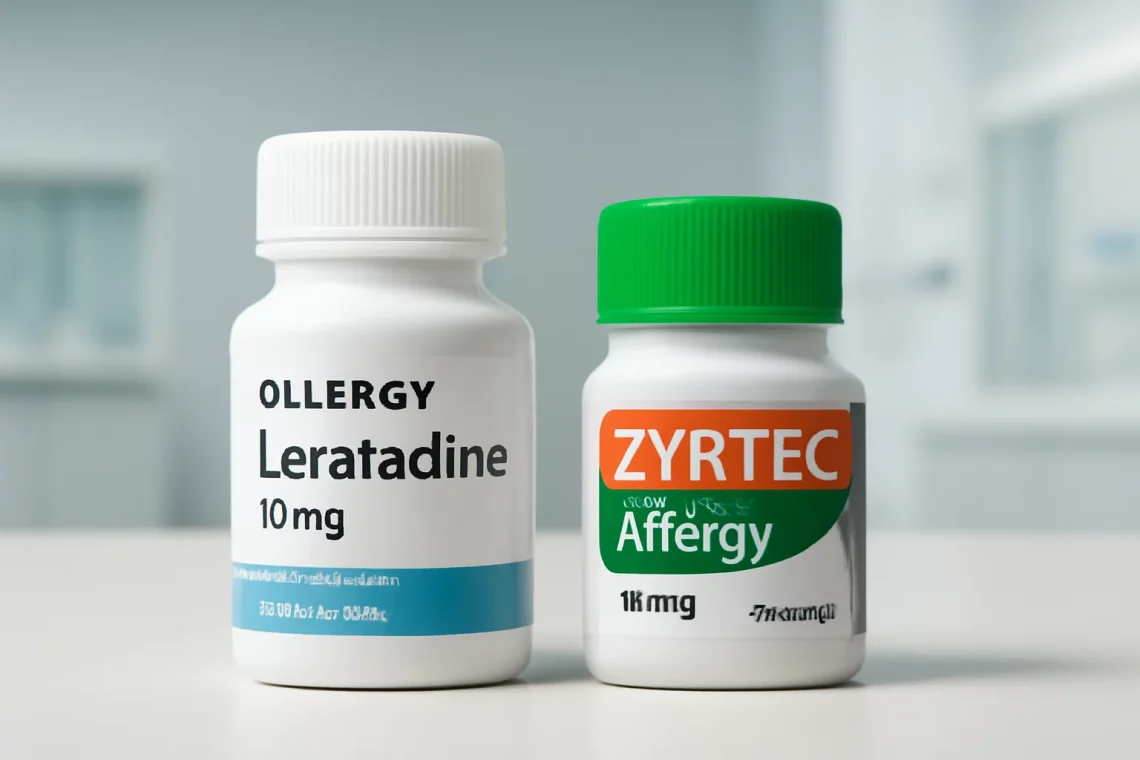Lifestyle
-
Rosuvastatin vs Atorvastatin Which Statin is Right for You
High cholesterol levels are a common health concern that can lead to serious cardiovascular diseases if not properly managed. As a result, statins have become one of the most widely prescribed classes of medications aimed at lowering cholesterol levels. Among the various statins available, Rosuvastatin and Atorvastatin are two of the most prominent options. Both medications have shown efficacy in reducing low-density lipoprotein (LDL) cholesterol, often referred to as “bad” cholesterol, while simultaneously improving high-density lipoprotein (HDL) cholesterol, or “good” cholesterol. The decision between Rosuvastatin and Atorvastatin can be influenced by a variety of factors including the specific cholesterol profile of the patient, their overall health condition, and potential side…
-
Fentanyl Patch vs Butrans: Understanding Pain Management Options
The use of transdermal patches for pain management has gained significant attention in recent years. Among the various options available, Fentanyl patches and Butrans patches are two prominent choices. Both medications are designed to provide continuous pain relief, but they operate through different mechanisms and are indicated for varying types of pain. Understanding the nuances between these two options is crucial for patients and healthcare providers alike. Fentanyl patches deliver a potent opioid analgesic, making them suitable for managing severe pain, often associated with chronic conditions or postoperative recovery. On the other hand, Butrans patches contain buprenorphine, a partial opioid agonist that offers a different approach to pain relief. This…
-
Zepbound vs Phentermine: Which Weight Loss Solution is Right for You?
Weight management is a significant concern for many individuals in today’s fast-paced world. With the rise in obesity rates and the associated health risks, effective weight loss solutions are increasingly sought after. Among these solutions, medications like Zepbound and Phentermine have gained attention for their potential to aid in weight loss. While both medications aim to assist individuals in shedding extra pounds, they operate through different mechanisms and have distinct profiles. Understanding the differences between these two options can empower individuals to make informed decisions regarding their weight loss journeys. As the landscape of weight management continues to evolve, the importance of evidence-based approaches cannot be overstated. With countless diets,…
-
Wellbutrin vs Viibryd: Comparing Effectiveness and Side Effects
In recent years, mental health has become a focal point for both healthcare professionals and the general public. With increasing awareness around conditions such as depression and anxiety, the search for effective treatment options has intensified. Among the various medications available, Wellbutrin and Viibryd have emerged as popular choices for managing symptoms associated with depression and anxiety disorders. These medications represent different classes of antidepressants, each with unique mechanisms of action, side effects, and benefits. Understanding the distinctions between Wellbutrin and Viibryd is crucial for patients and healthcare providers alike. The choice of medication can significantly affect a patient’s quality of life, highlighting the importance of informed decision-making in treatment…
-
Loratadine vs Zyrtec: Which Allergy Medication Is Right for You?
Allergies can be a significant burden for many individuals, causing discomfort and affecting daily life. As seasons change, pollen levels rise, and dust accumulates, people often seek relief from the symptoms of allergic rhinitis, such as sneezing, itchy eyes, and runny noses. Among the myriad of over-the-counter medications available, loratadine and Zyrtec are two popular antihistamines that provide relief from these pesky symptoms. Both of these medications are effective, but they work differently and may suit different individuals based on their unique health profiles and lifestyle needs. Loratadine is a second-generation antihistamine known for its non-drowsy properties, making it a preferred choice for those who need to maintain their daily…
-
Meloxicam vs Relafen: Which Pain Relief Option is Right for You?
Meloxicam and Relafen are two medications often prescribed for the treatment of pain and inflammation associated with various conditions, including arthritis and other musculoskeletal disorders. Both drugs belong to the class of nonsteroidal anti-inflammatory drugs (NSAIDs), which are commonly used to alleviate discomfort and improve quality of life for individuals suffering from chronic pain. While they serve similar purposes, there are distinct differences in their mechanisms of action, effectiveness, side effects, and usage guidelines that can influence a patient’s choice of treatment. Understanding these differences is crucial for both healthcare providers and patients in making informed decisions about pain management. With the rising awareness of the importance of personalized medicine,…
-
Vraylar vs Geodon: A Comprehensive Comparison of Antipsychotic Medications
Vraylar and Geodon are both medications commonly used in the treatment of mental health disorders, particularly schizophrenia and bipolar disorder. Each of these drugs belongs to a class known as atypical antipsychotics, which are designed to help manage symptoms of these conditions by altering the effects of neurotransmitters in the brain. The choice between Vraylar and Geodon can significantly impact a patient’s quality of life, as both medications have different mechanisms of action, side effects, and efficacy profiles. In recent years, there has been a growing interest in understanding how these medications compare, as patients and healthcare providers alike seek the most effective treatment options available. Factors such as dosage,…
-
Fentanyl vs Tramadol: Understanding Pain Management Options
Fentanyl and tramadol are two medications that have gained significant attention in the medical community and the media alike. Both are used to treat pain, but they operate in fundamentally different ways and belong to different classes of pain relief medications. Fentanyl, a potent synthetic opioid, is often utilized in severe pain management scenarios, especially for patients undergoing major surgeries or experiencing extreme discomfort. In contrast, tramadol is classified as a non-opioid analgesic with a dual mechanism of action that makes it more suitable for moderate pain relief. The rise in the use of both medications has sparked discussions about their safety, efficacy, and potential for addiction. Fentanyl is notorious…
-
Doxycycline vs Minocycline: Which Antibiotic is Right for You?
Doxycycline and minocycline are both antibiotics belonging to the tetracycline class, commonly prescribed for various bacterial infections. While they share similar mechanisms of action and therapeutic uses, each has unique properties that can influence their effectiveness, side effects, and suitability for different patient populations. Understanding the distinctions between these two medications is essential for healthcare providers, patients, and anyone interested in antibiotic treatment options. As antibiotic resistance continues to rise, knowing the most appropriate antibiotic for specific conditions is crucial. Factors such as the type of infection, individual patient response, and potential side effects can all play significant roles in determining whether doxycycline or minocycline is the better choice. This…
-
Xanax vs Buspirone: Understanding the Differences and Uses
Xanax and Buspirone are two medications commonly prescribed for the treatment of anxiety and related disorders. While both drugs aim to alleviate symptoms of anxiety, they function through different mechanisms and are used in varying clinical scenarios. Understanding these differences is crucial for individuals seeking effective treatment options for their anxiety. Xanax, known generically as alprazolam, is a benzodiazepine that works by enhancing the effects of a neurotransmitter called gamma-aminobutyric acid (GABA) in the brain, leading to a calming effect. On the other hand, Buspirone is an anxiolytic that operates through a different pathway, primarily affecting serotonin and dopamine receptors. The choice between Xanax and Buspirone can often confuse patients…







































